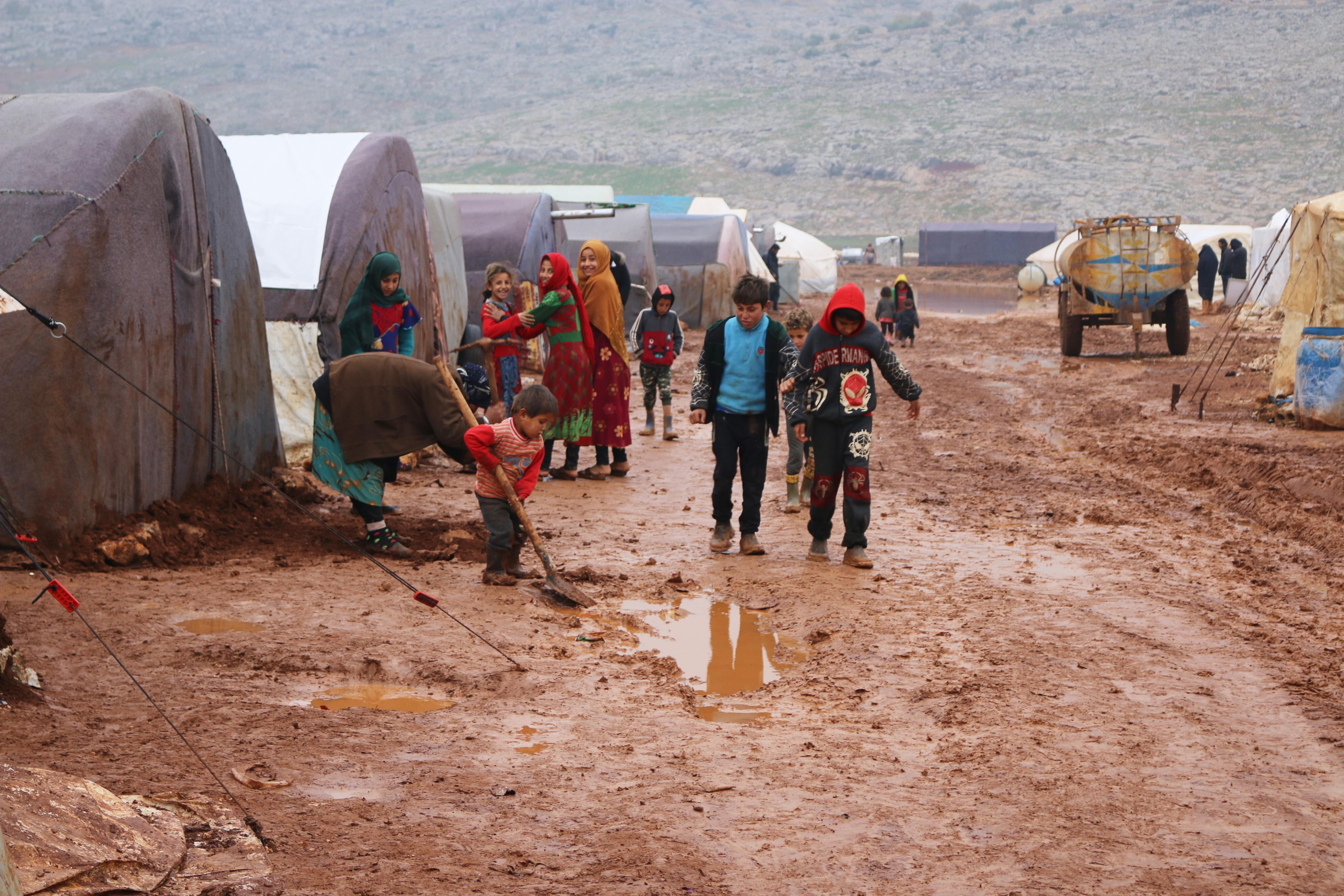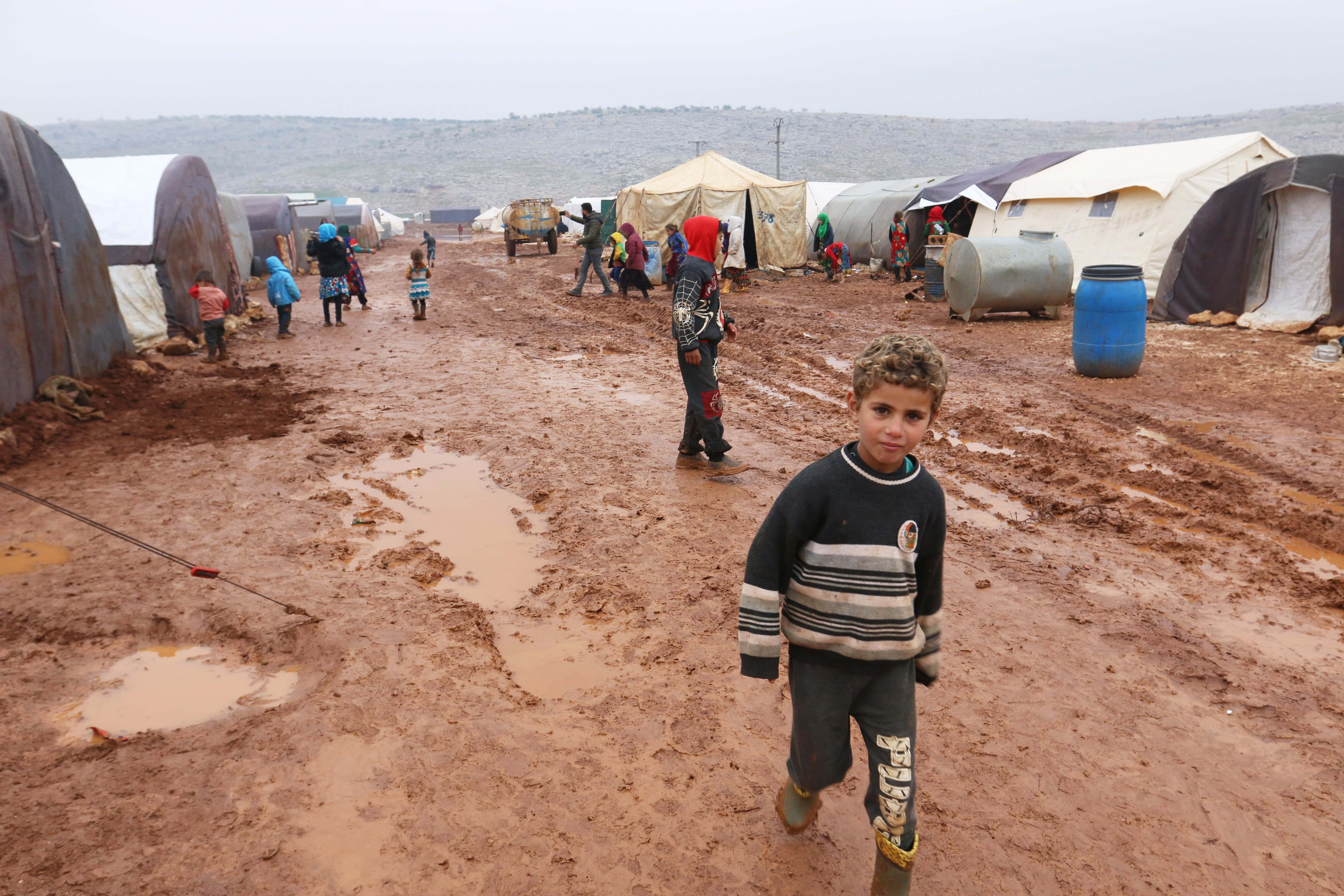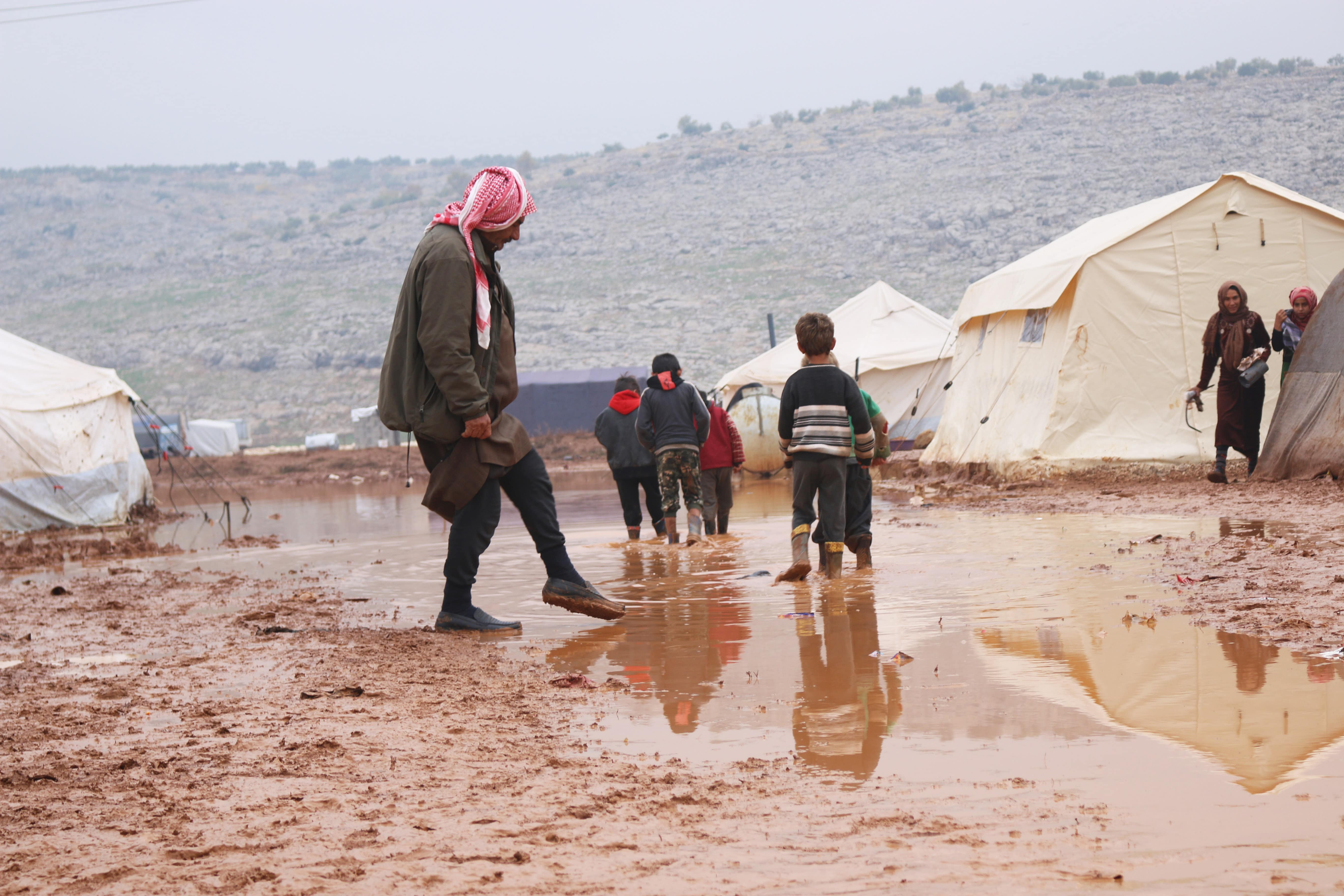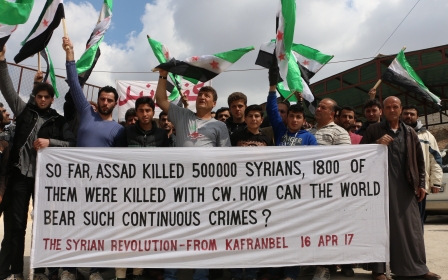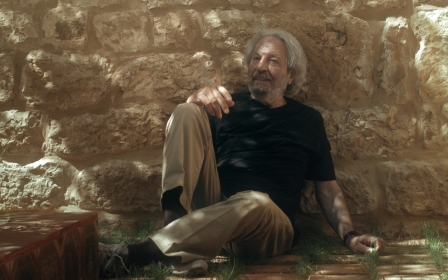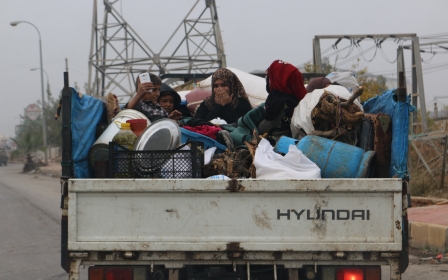'We live in swamps': Displaced Syrians struggle as torrential rains pound camps
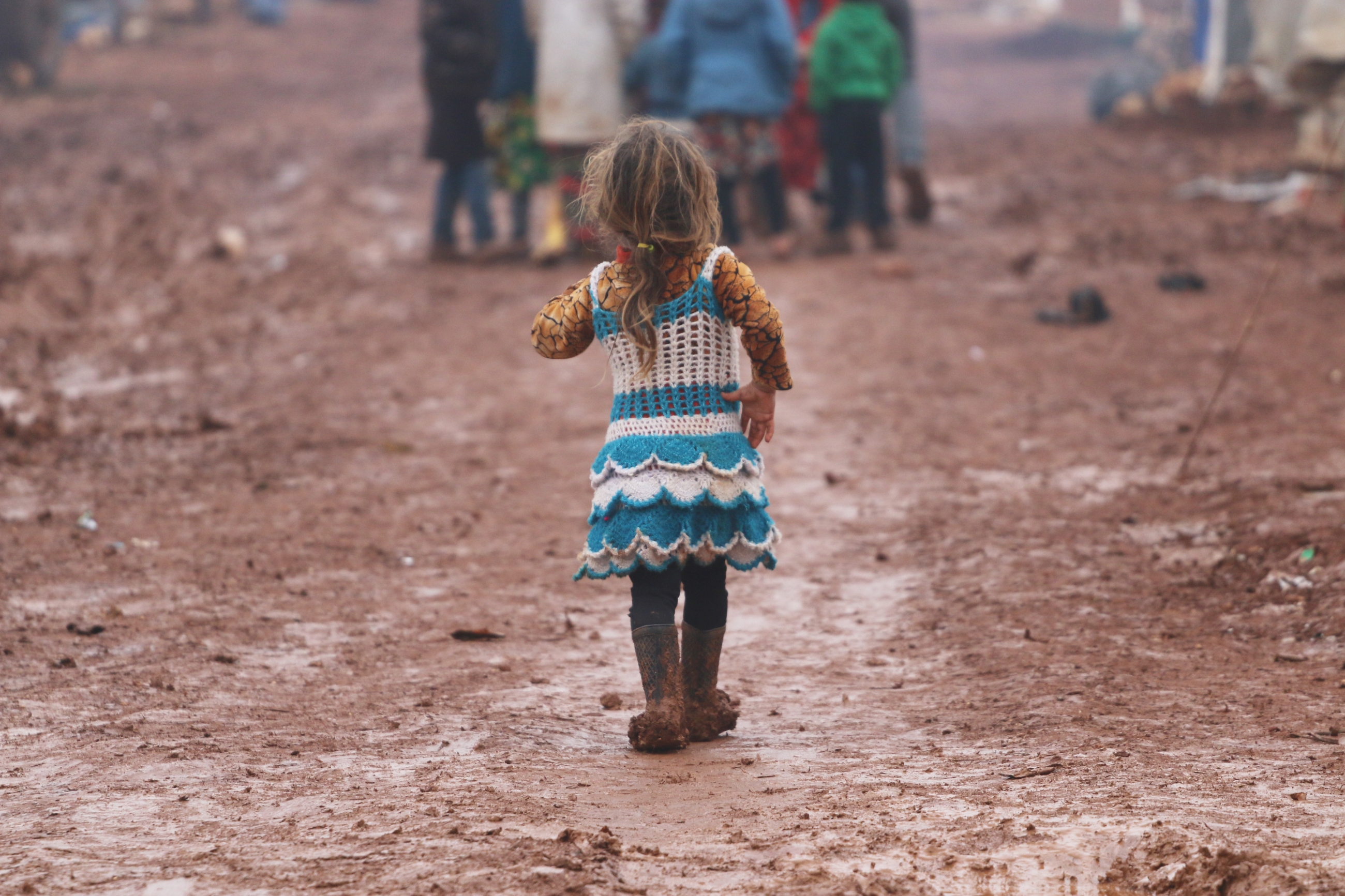
Heavy rainfall is causing misery for thousands of internally displaced Syrians in the north of the country, turning lush fields of grassland into enormous pools of mud.
More than 5,000 people have been living in dilapidated tents in Idlib province without running water and electricity since last week, when heavy rains first lashed the region.
Residents in some of the makeshift homes told Middle East Eye that the deluge had destroyed their few belongings, including bedding, leaving them with nothing as temperatures are set to approach zero Celsius.
"From the first [day when the] rains [started], our life has become more difficult," Hajij al-Jassem, a villager from Umm Nir in Hama province, told MEE.
"The camp [has] become a swamp.
Stay informed with MEE's newsletters
Sign up to get the latest alerts, insights and analysis, starting with Turkey Unpacked
"We need a boat to move inside the camp," he added sarcastically. "This is just the beginning, how will we be in the future?"
Trapped in a quagmire
Idlib, which is home to about three million people, is one of the last remaining holdouts of opposition to Syrian President Bashar al-Assad.
Tens of thousands of Syrians have fled to the region in recent months and now depend on food, blankets and heating from humanitarian groups to survive.
Assad, who has been in power for 19 years, has repeatedly vowed to reclaim all areas of the country that fell to the rebels, and his forces, backed by Russia, have continued to launch air strikes on the war-ravaged region despite a ceasefire agreement.
Last month, the New York Times published a report looking into Russian air raids on Idlib over a 12-hour period, and found that the Russian air force repeatedly bombed hospitals.
"When the warplanes targeted my neighbourhood, I fled with my family, and now live in this quagmire - a camp that lacks basic elements such as sanitation," Amal Mansour, a resident from Kafr Nabl, told MEE.
"I wash my children's clothes several times [a day] because it is so dirty as a result of the mud that they have to walk through."
'Not suitable for housing'
The heavy rains come at a time when Syria is expected to face extremely cold weather conditions, with temperatures dropping below zero Celsius and prolonged periods of snow.
Last winter, at least 29 children and newborn babies died in sub-zero temperatures after their families fled the last Islamic State (IS) group-controlled villages in eastern Syria.
"There is support from [humanitarian] organisations to the camps, but it is shy and does not rise to the scale or magnitude of the disaster," said Obadah Arouani, a project manager at the Saed Charitable Authority.
"Most of the camps are newly built on agricultural lands that lack [basic] infrastructure and are not suitable for housing," he added.
The war in Syria, now in its ninth year, has devastated much of the country. An estimated half a million people have been killed and millions have been forced to live as refugees.
Middle East Eye delivers independent and unrivalled coverage and analysis of the Middle East, North Africa and beyond. To learn more about republishing this content and the associated fees, please fill out this form. More about MEE can be found here.


